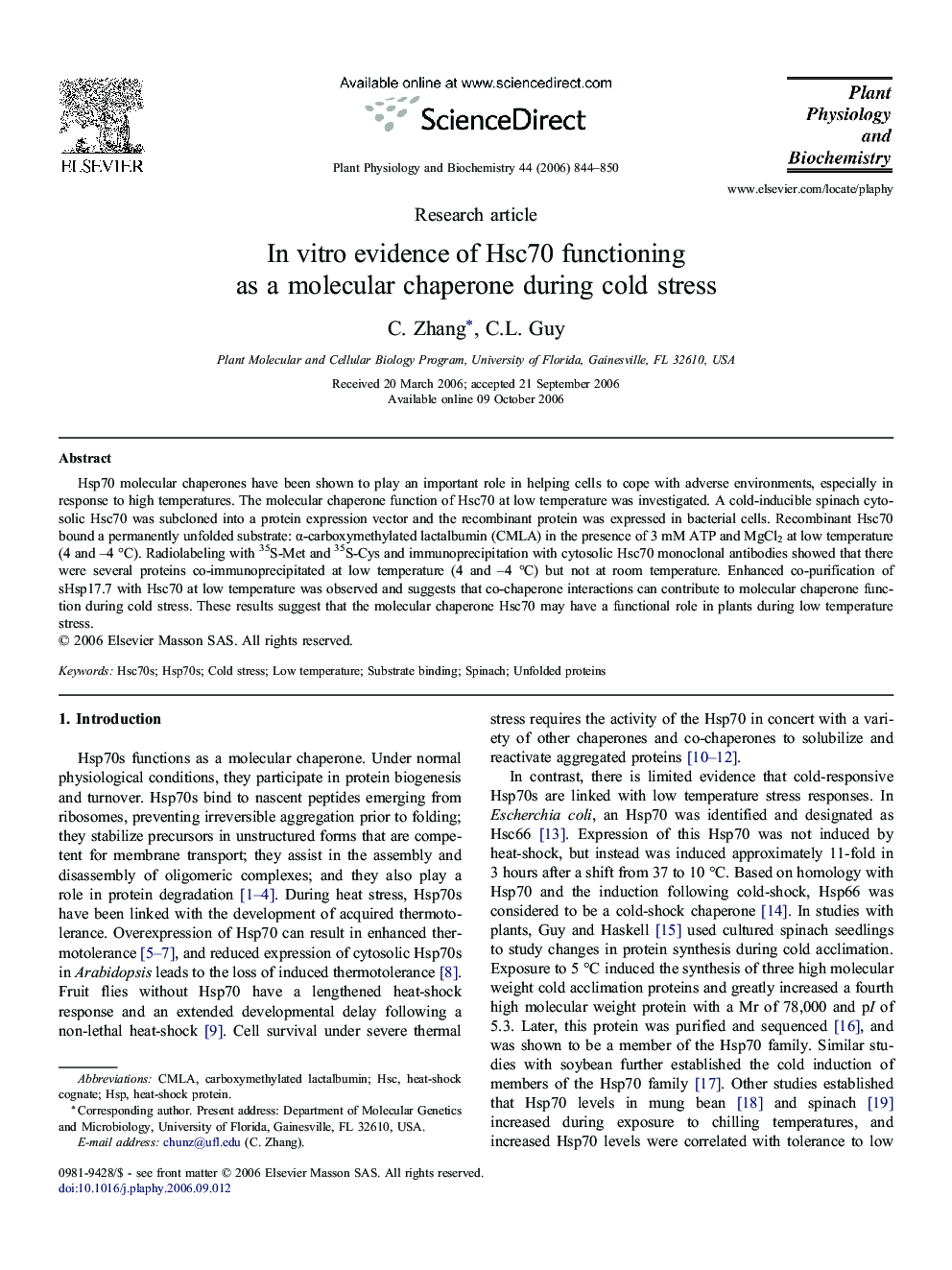| Article ID | Journal | Published Year | Pages | File Type |
|---|---|---|---|---|
| 2016626 | Plant Physiology and Biochemistry | 2006 | 7 Pages |
Hsp70 molecular chaperones have been shown to play an important role in helping cells to cope with adverse environments, especially in response to high temperatures. The molecular chaperone function of Hsc70 at low temperature was investigated. A cold-inducible spinach cytosolic Hsc70 was subcloned into a protein expression vector and the recombinant protein was expressed in bacterial cells. Recombinant Hsc70 bound a permanently unfolded substrate: α-carboxymethylated lactalbumin (CMLA) in the presence of 3 mM ATP and MgCl2 at low temperature (4 and –4 °C). Radiolabeling with 35S-Met and 35S-Cys and immunoprecipitation with cytosolic Hsc70 monoclonal antibodies showed that there were several proteins co-immunoprecipitated at low temperature (4 and –4 °C) but not at room temperature. Enhanced co-purification of sHsp17.7 with Hsc70 at low temperature was observed and suggests that co-chaperone interactions can contribute to molecular chaperone function during cold stress. These results suggest that the molecular chaperone Hsc70 may have a functional role in plants during low temperature stress.
